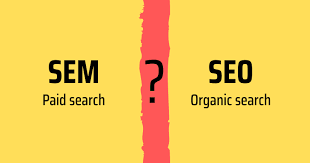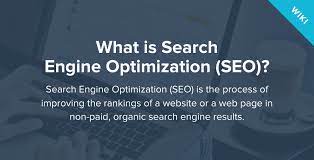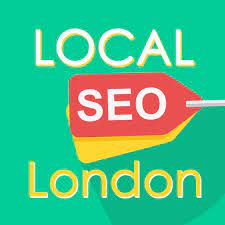Unlocking Success: The Art of Search Engine Promotion
The Power of Search Engine Promotion
Search engine promotion is a crucial aspect of any digital marketing strategy in today’s competitive online landscape. With millions of websites vying for attention on the internet, ensuring that your website ranks high on search engine results pages (SERPs) is essential for driving traffic and increasing visibility.
Search engine promotion involves various techniques aimed at improving a website’s search engine ranking. This includes both organic methods such as search engine optimisation (SEO) and paid methods such as pay-per-click (PPC) advertising.
The Benefits of Search Engine Promotion
Effective search engine promotion can yield numerous benefits for businesses:
- Increased Visibility: By appearing at the top of search results for relevant keywords, your website gains visibility among potential customers.
- Higher Traffic: Improved search engine rankings lead to increased organic traffic to your website, resulting in more opportunities for conversion.
- Brand Authority: Websites that consistently rank well on search engines are perceived as more trustworthy and authoritative by users.
- Cost-Effective Marketing: Compared to traditional advertising methods, search engine promotion can offer a higher return on investment (ROI) due to its targeted nature.
- Data-Driven Insights: Through analytics tools, businesses can gather valuable data on user behaviour and preferences to further refine their promotional strategies.
Key Strategies for Search Engine Promotion
To succeed in search engine promotion, businesses should consider implementing the following strategies:
- Keyword Research: Identifying relevant keywords that align with your business offerings and target audience is crucial for SEO success.
- On-Page Optimisation: Optimising website content, meta tags, and images to improve search engine visibility and user experience.
- Quality Content Creation: Producing high-quality, engaging content that resonates with users and encourages organic link building.
- Link Building: Earning backlinks from reputable websites to enhance domain authority and improve search rankings.
- Paid Advertising: Utilising PPC campaigns strategically to supplement organic efforts and target specific audience segments.
In Conclusion
In conclusion, search engine promotion plays a vital role in helping businesses stand out in the digital realm. By implementing effective strategies and staying abreast of algorithm updates, businesses can enhance their online presence, attract quality traffic, and ultimately drive growth through improved search engine visibility.
Top 7 Tips for Boosting Your Website’s Search Engine Visibility
- Optimize your website with relevant keywords that your target audience is likely to search for.
- Create high-quality and engaging content that is valuable to your users.
- Improve your website’s user experience to encourage visitors to stay longer and explore more pages.
- Build backlinks from reputable websites to increase your site’s authority and credibility.
- Regularly update and maintain your website to ensure it stays current and relevant in search engine results.
- Utilize social media platforms to promote your website and attract more traffic.
- Monitor your performance using analytics tools and make adjustments based on the data.
Optimize your website with relevant keywords that your target audience is likely to search for.
To maximise the effectiveness of your search engine promotion efforts, it is essential to optimise your website with relevant keywords that resonate with your target audience and align with their search behaviour. By incorporating these keywords strategically into your website content, meta tags, and headings, you can increase the likelihood of your site appearing prominently in search results when potential customers search for products or services related to your business. This targeted approach not only enhances your website’s visibility but also improves the overall user experience, driving organic traffic and boosting conversion rates.
Create high-quality and engaging content that is valuable to your users.
Creating high-quality and engaging content that holds value for your users is a fundamental tip in search engine promotion. By offering content that is informative, relevant, and compelling, you not only attract the attention of your target audience but also establish credibility and authority in your industry. Valuable content not only helps improve your search engine rankings by driving organic traffic but also fosters trust and loyalty among users, ultimately leading to increased engagement and conversions on your website. Remember, content is king in the digital realm, and investing in quality content creation can significantly impact the success of your search engine promotion efforts.
Improve your website’s user experience to encourage visitors to stay longer and explore more pages.
To enhance your search engine promotion efforts, focus on improving your website’s user experience. By creating a user-friendly interface and engaging content, you can encourage visitors to stay longer on your site and explore multiple pages. A seamless navigation structure, fast loading times, and relevant information will not only keep users engaged but also signal to search engines that your website provides value to visitors. Ultimately, prioritising user experience can lead to increased dwell time, lower bounce rates, and improved search engine rankings for your website.
Build backlinks from reputable websites to increase your site’s authority and credibility.
Building backlinks from reputable websites is a powerful strategy to enhance your site’s authority and credibility in the eyes of search engines. When established and trustworthy sites link back to your content, it signals to search engines that your website is a reliable source of information. These backlinks not only boost your site’s visibility in search results but also contribute to building a strong online reputation. By earning backlinks from respected sources, you can strengthen your website’s credibility and improve its overall ranking potential.
Regularly update and maintain your website to ensure it stays current and relevant in search engine results.
Regularly updating and maintaining your website is a fundamental tip for effective search engine promotion. By consistently refreshing your content, addressing any technical issues, and staying up-to-date with industry trends, you can ensure that your website remains current and relevant in search engine results. Search engines value fresh and valuable content, so by keeping your site updated, you increase the likelihood of ranking higher in search results and attracting more organic traffic. Maintaining a well-maintained website not only improves user experience but also signals to search engines that your site is active and trustworthy, ultimately contributing to your overall online visibility and success.
Utilize social media platforms to promote your website and attract more traffic.
To enhance your search engine promotion efforts, it is advisable to leverage social media platforms as a powerful tool to promote your website and drive increased traffic. By actively engaging with your audience on platforms such as Facebook, Twitter, Instagram, and LinkedIn, you can not only increase brand visibility but also attract a wider audience to your website. Sharing valuable content, interacting with followers, and utilising targeted advertising on social media can all contribute to boosting your online presence and ultimately improving your search engine rankings.
Monitor your performance using analytics tools and make adjustments based on the data.
Monitoring your performance using analytics tools is a fundamental tip in search engine promotion. By leveraging data-driven insights, you can gain a deeper understanding of how your website is performing in search engine results. Analytics tools provide valuable metrics on user behaviour, keyword performance, and traffic sources, allowing you to track the effectiveness of your promotional efforts. Making adjustments based on this data enables you to refine your strategies, improve visibility, and enhance overall performance in the competitive online landscape.




